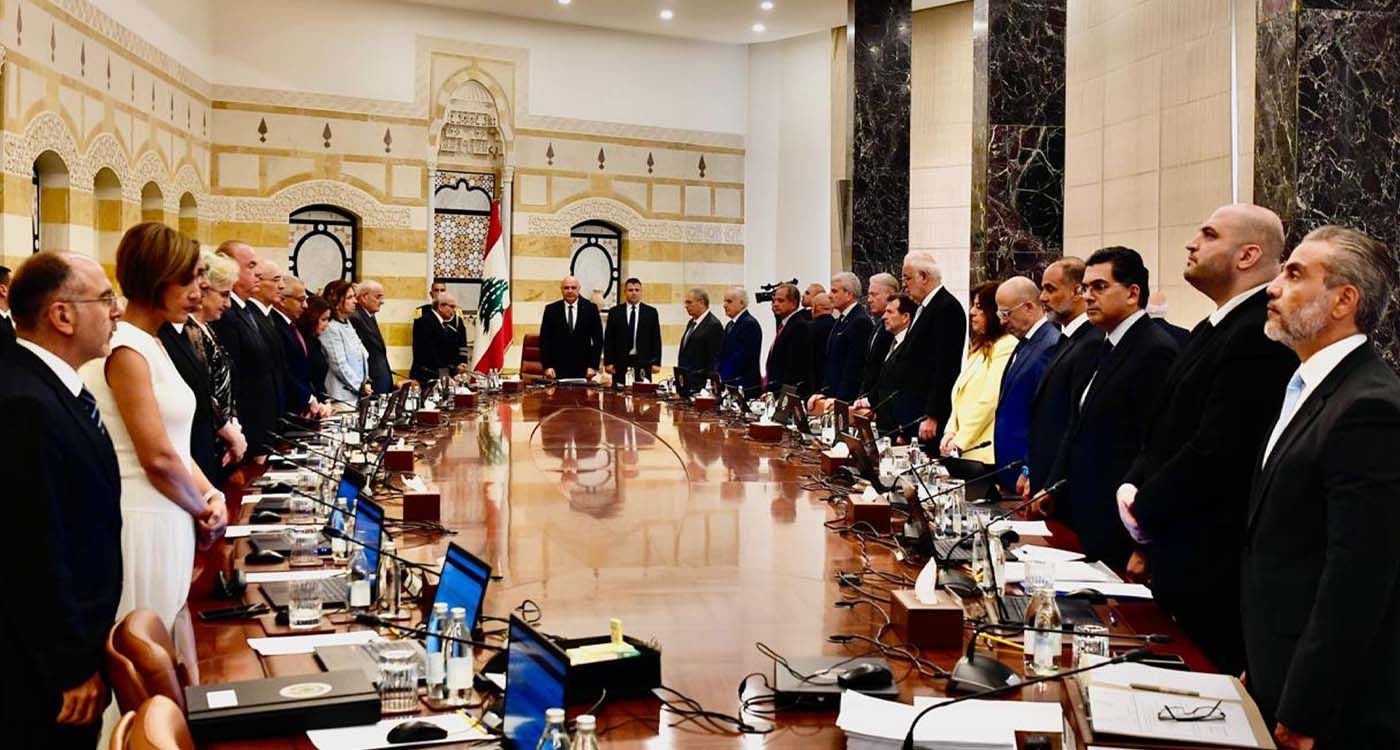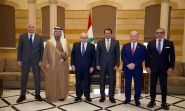
Lebanon is entering a critical week as the Cabinet prepares to meet on Friday, September 5. During the session, the army’s plan to disarm militias – most notably Hezbollah – is expected to be presented. The meeting comes amid mounting pressure from Israel and the United States, deep internal divisions and a so-called “consensus” initiative spearheaded by Speaker of Parliament Nabih Berri.
A High-Stakes Deadline
Since the Lebanese government adopted, on August 5, the principle of state monopoly over weapons, and two days later committed to the 11 objectives of the US roadmap for Lebanon, the country has entered uncharted territory.
The roadmap aims to establish a lasting ceasefire with Israel and to strengthen state authority across the entire territory, notably through the disarmament of all armed groups.
However, the staunch opposition of the Amal-Hezbollah tandem poses a major challenge to a state that remains determined to assert its authority nationwide.
Two Possible Scenarios: Between Compromise and Breakdown
According to sources cited by ad-Diyar, two outcomes are possible on Friday. The army’s plan could be presented during the session and formally approved, but its implementation might be delayed, pending a reciprocal move from Israel, in line with the give-and-take principle outlined in the US roadmap. Such a move could involve a halt to hostilities or the withdrawal from certain positions within Lebanon.
However, Amal and Hezbollah highlight the ongoing airstrikes over Lebanon and Israel’s continued presence at five border points, using these factors to justify maintaining the pro-Iranian group’s arsenal.
This point was emphasized by the Speaker of Parliament in his Sunday address as Israel stepped up its strikes in southern Lebanon, particularly around Nabatiyeh, in what is seen as the most violent escalation since November 2024. The Amal-Hezbollah duo widely interpret these attacks as a categorical Israeli rejection of the reciprocal approach proposed by the Americans.
According to the Shia tandem, Tel Aviv insists on the complete, preemptive disarmament of Hezbollah before making any concessions, without offering concrete guarantees in return.
By endorsing the disarmament plan without launching its implementation, the government preserves its unity, avoiding the resignation of ministers from the Hezbollah-Amal bloc.
The second scenario would involve a formal vote and adoption of the plan, even if the Shia ministers were to resign from the government. This outcome would give the army a clear mandate to begin executing its plan but would expose the country to potential unrest, as warned by Hezbollah leader Naim Qassem.
Berri’s Consensus Initiative
To defuse tensions, Berri has suggested an initiative, revealed by al-Modon, aimed at preserving what he describes as the political balance while avoiding a direct confrontation.
Under the proposal, all ministers would attend the session, including the Shia ministers, but no vote would take place. The army would present its plan, highlight progress made in demilitarizing the area south of the Litani River, outline the remaining steps and provide an indicative schedule without fixed dates.
The initiative would also include a series of requests: funding, logistical support, equipment, technical assistance and access to intelligence, while stressing the need for Hezbollah’s cooperation.
The government would “take note” of the plan without formally adopting it or approving the schedule, while reaffirming its commitment to restoring Lebanese sovereignty – a step that would require Israel’s withdrawal from the five border points and a halt to the raids.
‘Dialogue: A Thinly Veiled Refusal’
Contacted by This is Beirut, Charles Jabbour, head of communications for the Lebanese Forces (LF), stressed the uncertainty surrounding the session, noting that the LF reject the dialogue put forward by Speaker Berri on the weapons issue.
According to him, Hezbollah demands an explicit reversal of the government’s decision, while Berri’s refusal is “masked by the call for dialogue, which in reality aims to undermine the government’s decision.”
Since 2006, when the issue of Hezbollah’s weapons first became pressing, the tandem has pursued a forward-looking strategy, advocating a vague dialogue on a national defense strategy – without achieving any breakthroughs.
Jabbour believes the government will not give in, stating that “accepting the dialogue would mean acknowledging the failure of its efforts.”
“The government will not reverse its decision,” he adds.
Regarding the timing, procedures and details of any disarmament, Jabbour emphasizes that these will be clarified over time, adding that “the army has become the only force capable of preserving Lebanese sovereignty.” He also insists that Hezbollah “is no longer in a position to stage another May 7.”
On May 7, 2008, Hezbollah took control of parts of Beirut and the surrounding mountains in response to the Siniora government’s decision to dismantle its illegal telecommunications networks and dismiss the head of security at Beirut’s airport, who reported to the pro-Iranian group. The crisis ended with the Doha Agreement, which restored a national unity government and granted Hezbollah an enhanced political role through the “blocking third,” giving it effective veto power over key decisions.
Meanwhile, journalist and political analyst Ali Hamadé argues that even if the army’s plan is approved by a simple majority, the resignation of the Shia ministers would undermine the political legitimacy of the decision, leading to a deadlock.
He compares Berri’s current call for dialogue to his 2006 initiative, which resulted in prolonged political paralysis. He adds, “The goal of the Shia tandem is to bury the current momentum to reclaim sovereignty, putting it off indefinitely.”
The September 5 session could signal an attempt at de-escalation. The government might project a façade of unity, the army could unveil its plan, while Hezbollah would slow its implementation without triggering a direct confrontation. Still, Lebanon could face the risk of an even more intense Israeli operation.
Alternatively, the session could mark a new turning point. The outcome remains uncertain.




Comments